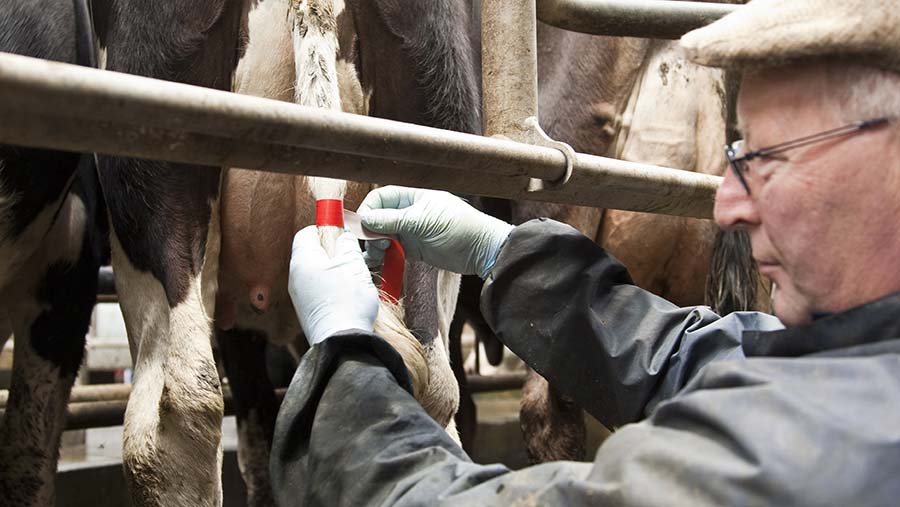Cattle farms urged to get ahead of potential EU antibiotics law
 © Anthea Kitching
© Anthea Kitching Cattle farmers should consider their on-farm antibiotics use ahead of possible EU-level rules making drug reporting mandatory, warns an industry body.
Accurate and consistent drug reporting would mean retaining individual control over antibiotics data and the method of collating it, according to the Cattle Health and Welfare Group (CHAWG).
This would mean standardising farm medicine book and veterinary records and aggregating them anonymously on a national level.
This follows a CHAWG industry review that found major shortcomings in how the cattle industry collects drug use data.
See also: Survey details antibiotic use in dairy herds
According to a statement issued by CHAWG: “Mandatory reporting in Europe could be just over the horizon and the European Medicines Agency has focused in the past year on developing a method for data collection on the use of antibiotics in the EU pig sector.”
Rather than having a universal approach, separate livestock sectors are being encouraged by the Veterinary Medicines Directorate (VMD) to develop drug-monitoring systems appropriate to the unique circumstances of each industry.
See also: Farmers Weekly medicines campaign
CHAWG chairman Tim Brigstocke added: “It is therefore in cattle farmers’ own interests to anticipate the kind of figures they might be asked to supply in the future, and develop a way of collecting that data which suits the way the UK industry works.
“Then we can retain control over the data and the methodology, and ensure the reporting is accurate – and this in turn will help the VMD represent our case better in Europe as this debate continues.”
A working group, supported by the VMD, is aiming to standardise veterinary records and log farm medicine book records.
Present confusion stems from multi-species approval on drugs and the discovery that veterinary practices are using as many as 15 different software programs to log data, explained Mr Brigstocke.
“We found that, while data is already stored at every vet practice and in every farm medicine book, it currently exists in many different forms,” said Mr Brigstocke. “It’s also not collected or collated, and is further complicated by multi-species approvals for many of the antibiotics.”
He explained that out of 420t of animal-authorised antibiotic active substance sold in the UK in 2013, only 14t was authorised solely for use in cattle.
However, 63t was authorised for multi-species use in food-producing animals and within the 217 products included in this, 201 are authorised for use in cattle.
CHAWG is calling on experts in the area, such as the pig sector, for assistance to ensure knowledge is shared and efficient working where possible.
